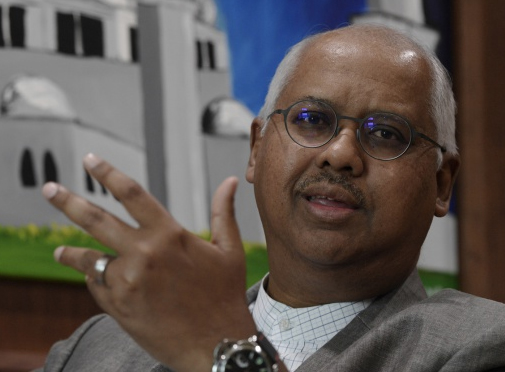
Malaysia: Mutual acceptance recipe for interracial unity

By Erda Khursyiah Basir
BERNAMA
Kuala Lumpur: The concept of mutual acceptance is the key ingredient of the recipe for interracial unity in Malaysia.
After 62 years of independence, it is high time that the people of Malaysia realised and accepted the fact that this country has a multiracial population with diverse historical, religious and cultural backgrounds, said Governance, Integrity and Anti-Corruption Centre deputy director-general Dr Anis Yusal Yusoff.
“Let’s take a couple in love as an analogy. Only after they get married and live under the same roof do they get to know of each other’s true disposition. Initially, it may be difficult to accept their spouse’s shortcomings, differences in opinions and such things but over time it becomes normal, purely due to the factor of mutual acceptance.
“In the Malaysian context, whether we like it or not, we can’t afford to choose. This is the way Malaysia is and this is the reality we all have to accept,” he told Bernama.
According to Anis Yusal, it is easier to get to know one another better when Malaysians accept each other; it also facilitates mutual understanding and respect regardless of race, creed, culture and even language.
‘STABLE-TENSION’ SITUATION
Admitting that differences have the potential to trigger conflicts, Anis Yusal, who is a principal fellow of the Institute of Ethnic Studies at Universiti Kebangsaan Malaysia, said if left to fester, these disputes can stoke the flames of hatred among the multiracial communities.
“[Racial] tensions do exist. Indeed, it is easy to spark (conflict). Just go to the roadside and speak ill of another race… it will definitely lead to a fight. But then, who wants to do such things as we have learnt our lessons from incidents that took place in the past,” he said.
Anis Yusal said one of his lecturers Distinguished Prof Dr Shamsul Amri Baharuddin had once shared with him that Malaysia was currently in a “stable-tension situation”.
“He said although the situation is stable, the tension is evident, so it is easy for anyone playing up racial sentiments to cause tension,” he said, adding that the “stable-tension” situation was, however, a good thing as it can serve as a check and balance system.
He also stressed that there is a need to understand the racial differences in Malaysia in terms of history, demographics and geography because as it happens communities who share the same roots do not necessarily know about their interconnection.
“Malaysia is made up of the peninsula, Sabah and Sarawak. The history of the three regions, before they were united, was different as they were ruled by different administrations.
“When asked about Malaysia’s races, most people would answer Malay, Chinese and Indian. This is not right because we have many other races and ethnicities as well, such as Kadazan, Dusun, Murut, Bajau, Iban and Melanau in Sabah and Sarawak. The roots of the Malays can also be traced to the Javanese, Bugis, Banjar and Minang communities. So, do we know our own race well enough?” he asked.
AVOID RACIAL SENTIMENTS
Anis Yusal also said that although Malaysia can bank on its experience to check racial tension, the people must, however, be wary of miscreants who liked to fish in troubled waters.
Pointing to certain politicians who play the race card and hamper efforts to unite the people, he said: “There are some political parties that only fight for their respective communities. How can we unite when we have political parties that only fight for the interests of specific communities?”
He said schools and teachers play a crucial role in efforts to forge unity among their students who come from diverse racial backgrounds.
This can be done by getting them to assimilate the culture of building good ties with the people of other races and respecting each other’s beliefs.
“Schools should organise visits to expose their students to matters related to interracial relations. They can perhaps visit a certain place where they can get to know the way of life of a certain community and embrace any similar values that they may share,” he said.
Describing schools as the best medium to unite people of different races, Anis Yusal said besides Bahasa Melayu, Mandarin and Tamil should also be taught at national schools to enable the students to master these languages.
“For example, in view of China’s economic development, it will be good for us to master Mandarin,” he added.
COMMON GROUND
Anis Yusal also said that every individual should strive to look for common ground in every difference that arises between races as this will make it easier for communities to accept one another.
“The issue we face today is the arrogance of certain people who are causing uneasiness in others. If we want people to respect us, we must also respect them.
“All of us have a role to play. If we remain egoistic and only want to fight for our own race, it will only lead to trouble in the future,” he said.
On how technology can help in efforts to unite the people, Anis Yusal said social media should be harnessed to foster unity, get to know the other races better and share useful information to educate the people.
However, the fact that social media can be misused and misinterpreted by certain quarters is cause for concern, he said.
“Where today’s technology is concerned, there are times when I’m not sure if we are becoming more progressive or going backwards. We receive a lot of information but without even digesting (reading) it properly, we forward it to others,” he said, warning that the implications of doing something without thinking can be detrimental to interracial relations.


